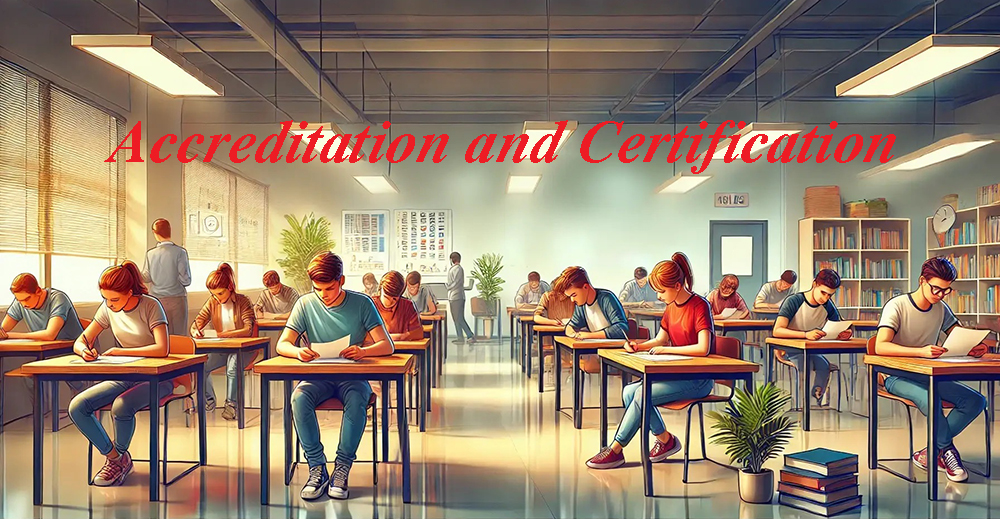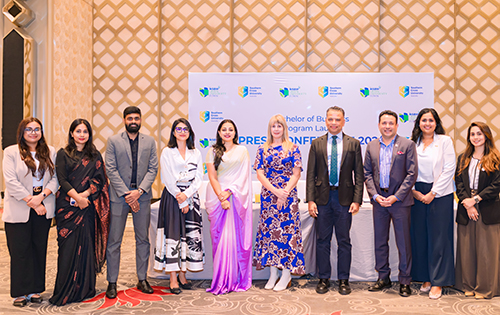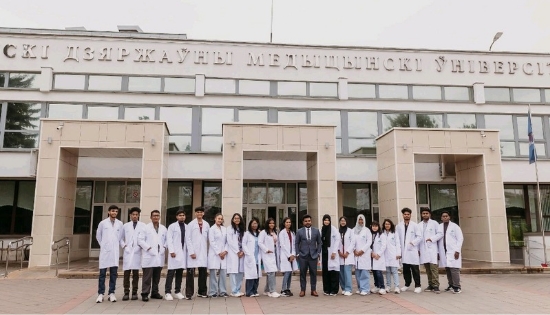Accreditation and Certification: Why They Matter in Higher Education

When it comes to higher education, especially for students planning to study abroad or enroll in professional programs, understanding accreditation and certification is essential. These terms are often confused, but they have distinct meanings and play different roles in ensuring the quality of education and skills development.
What is Accreditation?
Accreditation is a process in which an independent organization evaluates an educational institution or program to ensure it meets specific quality standards. This process guarantees that the institution provides a recognized and reliable education. For example, universities or colleges are typically accredited by national or international bodies, which gives students confidence that the institution is legitimate and the qualifications they earn are widely accepted.
Examples of Accreditation:
- The University Grants Commission (UGC) in Sri Lanka accredits higher education institutions to confirm they meet the country’s academic standards.
- ABET Accreditation is given to engineering and technology programs worldwide, ensuring they meet global quality standards.
What is Certification?
Certification, on the other hand, refers to a process where an individual’s skills, knowledge, or qualifications are validated against specific criteria, often by passing an exam or completing a course. Certifications are typically awarded by professional bodies or organizations to prove expertise in a particular area.
Examples of Certification:
- Microsoft Certified Professional (MCP): A globally recognized certification for IT professionals who demonstrate their skills in Microsoft technologies.
- IELTS Certification: A widely accepted English language test for students and professionals, certifying their language proficiency.
Why Should We Check for Accreditation and Certification?
For parents and students in Sri Lanka, verifying accreditation and certification is crucial before selecting an institution or program. Here’s why:
- Assurance of Quality: Accredited institutions and certified programs guarantee that students receive quality education and training that meet recognized standards.
- Global Recognition: An accredited degree or certification is more likely to be accepted by employers and universities around the world.
- Avoiding Fraud: With the rise of unrecognized institutions and fake certifications, checking for accreditation and certification helps protect students from wasting money and time on substandard education.
How to Verify Accreditation and Certification?
- Visit the official website of the accrediting body or certification provider to confirm their legitimacy.
- Check if the institution or program is listed on trusted databases such as UGC in Sri Lanka or international accreditation directories.
- Speak with representatives from the institution and request documentation of their accreditation or certification.
Accreditation ensures that an institution or program is trustworthy, while certification validates individual skills and qualifications. As higher education seekers and parents, being informed about these processes can help you make better decisions for a brighter future. Always take the time to research and verify these details to ensure the education and training you invest in is of genuine value.
Related News
Wuthering Heights: Book vs Movie – Which Resonates More?
Read • Watch • Learn When Emily Brontë published Wuthering Heights in 1847, few expected the novel to become one of the…
Read MoreWycherley International School Dehiwala Hosts Joyful Kiddies Fiesta 2026 Celebration
Wycherley International School Dehiwala welcomed students, parents and teachers to a spirited celebration of childhood at its Kiddies Fiesta 2026 on 11…
Read MoreBusiness, BUT NOT AS USUAL – Southern Cross University Brings Bachelor of Business to Sri Lankan Students at NSBM Green University
SCU Sri Lanka National Launch | 19–21 February 2026 | NSBM Green University, Homagama Southern Cross University (SCU), one of Australia’s leading…
Read MoreBelarusian State Medical University:A Trusted Pathway to Studying Medicine Abroad with ISC Education
For many Sri Lankan students, gaining entry to a local medical faculty remains highly competitive despite strong academic performance. As a result,…
Read MoreCourses
-

The future of higher education tech: why industry needs purpose-built solutions
For years, Institutions and education agencies have been forced to rely on a patchwork of horizontal SaaS solutions – general tools that… -

MBA in Project Management & Artificial Intelligence – Oxford College of Business
In an era defined by rapid technological change, organizations increasingly demand leaders who not only understand traditional project management, but can also… -

Scholarships for 2025 Postgraduate Diploma in Education for SLEAS and SLTES Officers
The Ministry of Education, Higher Education and Vocational Education has announced the granting of full scholarships for the one-year weekend Postgraduate Diploma… -

Shape Your Future with a BSc in Business Management (HRM) at Horizon Campus
Human Resource Management is more than a career. It’s about growing people, building organizational culture, and leading with purpose. Every impactful journey… -

ESOFT UNI Signs MoU with Box Gill Institute, Australia
ESOFt UNI recently hosted a formal Memorandum of Understanding (MoU) signing ceremony with Box Hill Institute, Australia, signaling a significant step in… -

Ace Your University Interview in Sri Lanka: A Guide with Examples
Getting into a Sri Lankan sate or non-state university is not just about the scores. For some universities' programmes, your personality, communication… -

MCW Global Young Leaders Fellowship 2026
MCW Global (Miracle Corners of the World) runs a Young Leaders Fellowship, a year-long leadership program for young people (18–26) around the… -

Enhance Your Arabic Skills with the Intermediate Language Course at BCIS
BCIS invites learners to join its Intermediate Arabic Language Course this November and further develop both linguistic skills and cultural understanding. Designed… -

Achieve Your American Dream : NCHS Spring Intake Webinar
NCHS is paving the way for Sri Lankan students to achieve their American Dream. As Sri Lanka’s leading pathway provider to the… -

National Diploma in Teaching course : Notice
A Gazette notice has been released recently, concerning the enrollment of aspiring teachers into National Colleges of Education for the three-year pre-service… -

IMC Education Features Largest Student Recruitment for QIU’s October 2025 Intake
Quest International University (QIU), Malaysia recently hosted a pre-departure briefing and high tea at the Shangri-La Hotel in Colombo for its incoming… -

Global University Employability Ranking according to Times Higher Education
Attending college or university offers more than just career preparation, though selecting the right school and program can significantly enhance your job… -

Diploma in Occupational Safety & Health (DOSH) – CIPM
The Chartered Institute of Personnel Management (CIPM) is proud to announce the launch of its Diploma in Occupational Safety & Health (DOSH),… -

Small Grant Scheme for Australia Awards Alumni Sri Lanka
Australia Awards alumni are warmly invited to apply for a grant up to AUD 5,000 to support an innovative project that aim… -

PIM Launches Special Programme for Newly Promoted SriLankan Airlines Managers
The Postgraduate Institute of Management (PIM) has launched a dedicated Newly Promoted Manager Programme designed to strengthen the leadership and management capabilities…
Newswire
-

Foreign Coach set to Replace Jayasuriya as SLC Opens Talks
ON: March 1, 2026 -

Free Sri Lanka Visa Extension for Foreigners Stranded by Middle East Crisis
ON: February 28, 2026 -

One Killed, Seven Injured at Abu Dhabi Airport Amid Iranian Strikes
ON: February 28, 2026 -

Debris from Intercepted Drone causes Fire at Dubai’s iconic Burj Al Arab
ON: February 28, 2026 -

Dubai Airport Damaged, Luxury Hotel Hit in Iranian Strikes
ON: February 28, 2026









